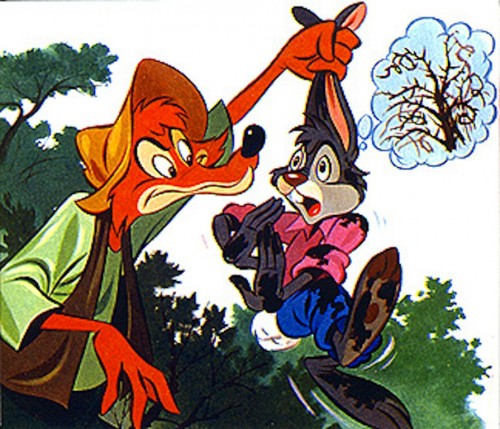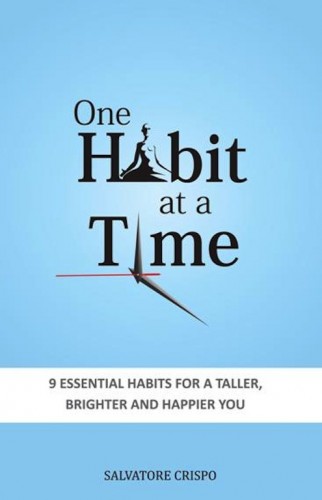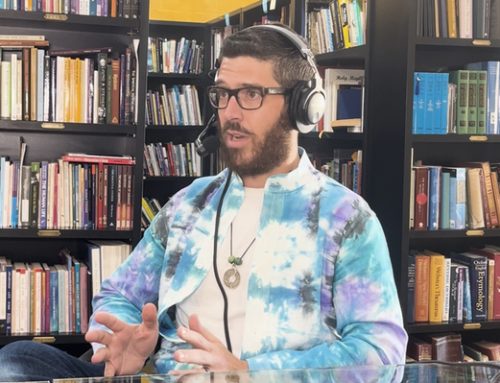Welcome to the new day!
For some of you, it’s Friday and your weekend is before you. For others, it is Saturday and your weekend is unfolding.
I’ll be an American this morning and get some work done. Then I’ll pretend I’m an Australian or Kiwi and begin my weekend by heading to Encinitas for a massage and a steam.
I’ve been burning the candle pretty well lately with all my writing assignments, coaching, conference prep and the lot so I may turn into a mushroom in my garden over the weekend so I have the juice to keep going next week. Before I head to the Massage Center to see Wes Boyce for a good bone scratcher of a massage, I’ll hit the gym for some heavy lunges and a little core work just to give him a little something extra to play with.
Everyone here at the institute is very busy with Conference preparation. We’ve had a continuous stream of excellent speakers confirm and as soon as we finish the schedule, I’ll be sure to let you know what’s available to you. I’m really excited to attend myself but am a little worried that I may have to present while some of the presentations I want to attend are on.
Today, in prep for the weekend, I thought I’d share some of my thoughts on creating happiness.
CREATING HAPPINESS
The desire for happiness is essentially a longing to awaken to who and what you truly are.
If we survey the great and beautiful creations throughout history, we can find that the creations that are most beautiful, functional, and/or enduring were created by people that loved what they were doing.
Love is naturally creative. Love loves novelty, something fresh, juicy.
Not many love a stale piece of bread each meal, but most of us love opening a fresh loaf and enjoying the novelty of a new, juicy piece of toast, a sandwich, and the unique tastes that come from freshly made bread; no two batches are the same, even for the same baker.
When we practice creating from our heart without judgment of our creations, we have no fear of loss or transformation. The child will build a sandcastle all day and often to the shock of others, destroy it and laugh about it. That is the nature of unbound play.
Because of our social conditioning we are hyper-aware of what we don’t want!what we are afraid of. We are repeatedly bombarded by media showers of doom and gloom; the stock market, the economy, war in the Middle East, terrorism, murders, muggings, stabbings, break ins, organized crime, drug cartels, medical disasters, plain, train and automobile crashes, disasters!
Soon, we begin focusing our minds on what we don’t want. We park our car and instead of having the joy of sharing the beauty of your favorite ride with others, we lock and double lock and worry every ten minutes as to whether we remembered to lock the car. We are worried someone will scratch or dent our little baby. All the while, we can’t taste the ice cream or enjoy the show.
Soon, every coiled rope becomes a dangerous snake. Every stranger becomes a potential terrorist. Every opportunity becomes another chance to fear our own failure. Every act of self-indulgence becomes another sin we’ve got to conceal from God.
Soon, our natural nature – our happiness – becomes like a shadow. Out of our pain and mental-emotional fatigue, we often have to find ways to create happiness we can’t seem to create ourselves.
We feel happy for a moment when someone gives us something.
We feel happy for a couple hours when we get drunk.
We feel happy for a few minutes when having a cigarette.
We feel happy for a few moments while getting a little sex on the side, or fanaticizing about it.
We feel happy when a meal is on the way, but soon we complain about it.
We feel really happy at night when we are sound asleep, but we were unconscious, so we can’t remember it!
I too was raised in the same battlefield you are in. But, we can take a lesson from Brier Rabbit.

Brier Rabbit wisely tricked the wolf into thinking that the brier patch was the most dangerous and scary place he could end up. Soon, the wolf fell for his trick and thought that throwing him in the brier patch would cause great pain for him. So, he did so without realizing that Brier Rabbit grew up and lived there!he tricked the wolf into delivering him “home”!
You can choose to listen to your shadow-self (your wolf), or you can choose to listen the the Brier Rabbit in you and realize the perceived pains of being home are a lot less an issue than what your wolf keeps offering you.
Learning to be your own Brier Rabbit is a practice. Since there are no shortages of wolves, the practice doesn’t require any travel or much effort to engage. It simply requires a willingness to be smarter than your wolf, which shouldn’t be too tough since the wolf is a dog and you are human with a far more powerful, more creative brain.
After all, if a rabbit can outsmart a wolf, you’ve certainly got no excuses!
Happiness Is A Practice
Even after many years of practice, my wolf loves to show up and tempt me. He tempts me to: Get angry. Get jealous. To stop all this “helping people stuff” and get rich quick! To be impatient with others. To worry about the complaints of wolf-minds!the list goes on. Sometimes, he gets a piece of me, but I’m making it tougher and tougher for him to feed off my happiness.
Some of the ways I do this are:
1. Stay focused on my awareness that most people are unaware of their own wolf and don’t realize they are projecting their fears and insecurities on me and others. I remind myself they are the victims of unawareness and try to have compassion for them, even when they play silly games over and over again!
2. Be “aware” of when my wolf is wolfing too! That way, I can calm him and let him know he’s just an actor in my play and I’m the director so he should stop improvising or I’ll give his part to a nicer wolf!
2. Draw your pain. Simply get some paper and colors and let go of attachment.
Draw what you feel inside in the center of a circle. Then, step away from it and see it as soil. Allow your imagination to imagine how that pain and ugliness can become the basis for beauty. Then, draw the beauty.
It may be an exemplification of the lesson you’ve been given. It may be a drawing of who you really are. As long as you consciously choose to convert what you don’t want/like to what you do want/like, you will get better and better at it. And, you’ll eventually become capable of drawing the beauty from yourself as soon as the other arises. Soon, your graffiti becomes beauty.
3. Exercise. I find my training sessions in the gym very helpful for moving emotions that don’t serve me out. I transform them into the ability to overcome resistance.
4. Be present with the Grace of my meals. Be joyful that we aren’t starving or being tortured like so many are. I’m constantly reminded of my good fortune every time I have a lovely meal.
5. Rest! I find my wolf is more active when I’m tired. The wolf knows that fatigue weakens our resolve. Too much work, people, deadlines, demands, etc., all lead to opening doors for the wolf.
I’ve found that when the wolf is tempting me to “react”, if I just get still, take a short nap, or go home and lay in my garden, I gain a new perspective. Whenever I gain a healthy perspective, the wolf feels defeated and retreats to his den.
6. Make Love. Whenever I can share passionate love making, it acts like medicine to my soul and reminds me of how joyful relationship can be.
7. Forgive Myself! When I’m getting beaten at my game by my wolf, I find if I forgive myself, I feel better and out of my own empathy and compassion, I learn to practice empathy and compassion more naturally.
We are all in the brier patch together, yet, we can all practice wolf taming. In the process, the wolf that once was the perceived source of our unhappiness becomes a teacher we are grateful for.
We know we are learning because the wolf comes around less and less.

For those of you that are interested in a little book that will be a great support tool for your wolf taming, I recommend you read and practice the offering shared by Salvatore Crispo. I liked his little book so much, I wrote the forward for him and hope you enjoy it as much as I did.
Enjoy your weekend.
Love and chi,
Paul Chek




